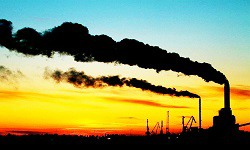Global Warming & Climate Change
Track-15: Global Warming & Climate Change
Global warming and Climate change are often used interchangeably but have distinct meanings. Similarly, the terms weather and climate are sometimes confused, though they refer to events with broadly different spatial and timescales. Weather refers to atmospheric conditions that occur locally over short periods of time from minutes to hours or days. Familiar examples include rain, snow, clouds, winds, floods or thunderstorms. Remember, weather is local and short-term. Climate, on the other hand, refers to the long-term regional or even global average of temperature, humidity and rainfall patterns over seasons, years or decades. Remember, climate is global and long-term. Climate change refers to a broad range of global phenomena created predominantly by burning fossil fuels, which add heat-trapping gases to Earth’s atmosphere. These phenomena include the increased temperature trends described by global warming, but also encompass changes such as sea level rise; ice mass loss in Greenland, Antarctica, the Arctic and mountain glaciers worldwide; shifts in flower/plant blooming; and extreme weather events.
- Forest degradation
- Circulation of atmospheric winds
- Renewable Energy to Mitigate Climate Change
- Factors influencing Climate Change, Health & Economics
Related Conference of Global Warming & Climate Change
Global Warming & Climate Change Conference Speakers
Recommended Sessions
- Archaeology
- Ecology & Environmental Engineering
- Economic Geology & Geochemistry
- Environmental Geology
- Environmental Sustainability
- Geology and Geophysics
- Geology in Civil Engineering
- Global Warming & Climate Change
- Groundwater Foundation & Hydrology
- Marine Geology & Oceanography
- Mining and Soil Exploration
- Natural Hazards & Disaster Management
- Oil and Gas Reservoir
- Paleontology & Paleo-anthropology
- Petroleum Geology
- Remote Sensing & GIS of Environment
- Sedimentology Geology & Stratigraphy
- Soil and Rock Mechanics
- Structural Geology
- Volcanology & Plate tectonics

